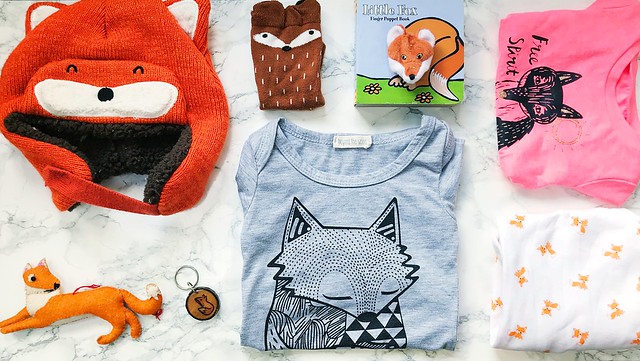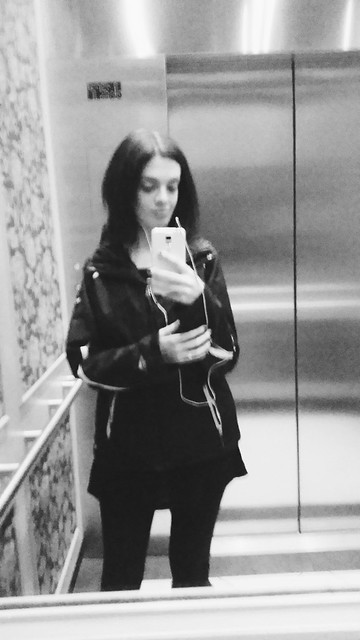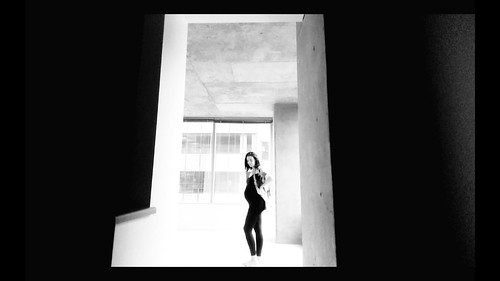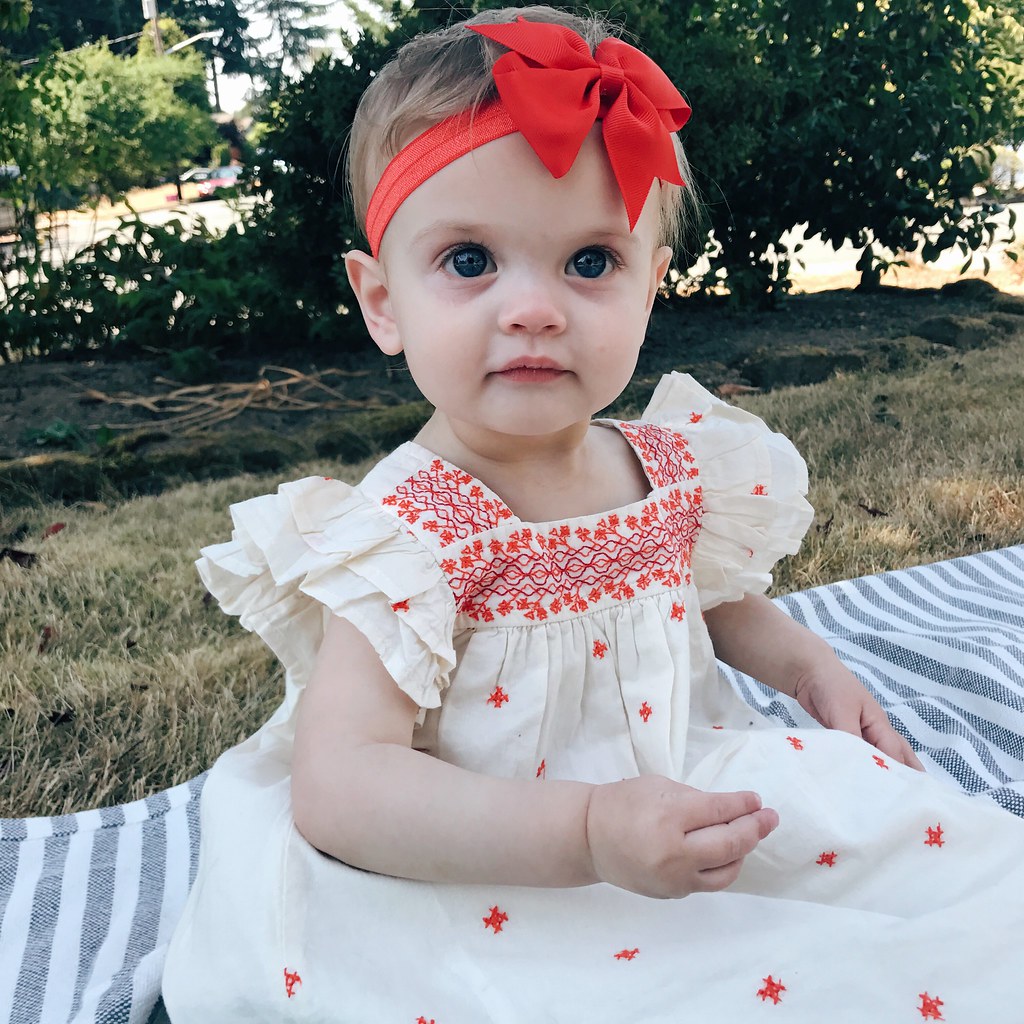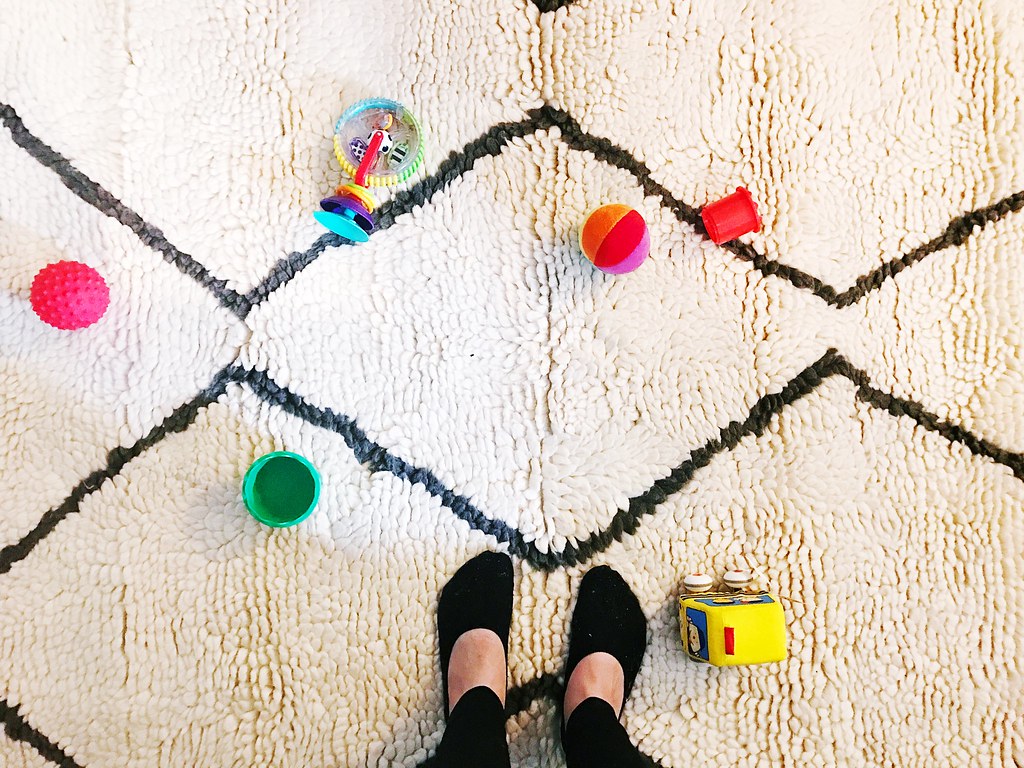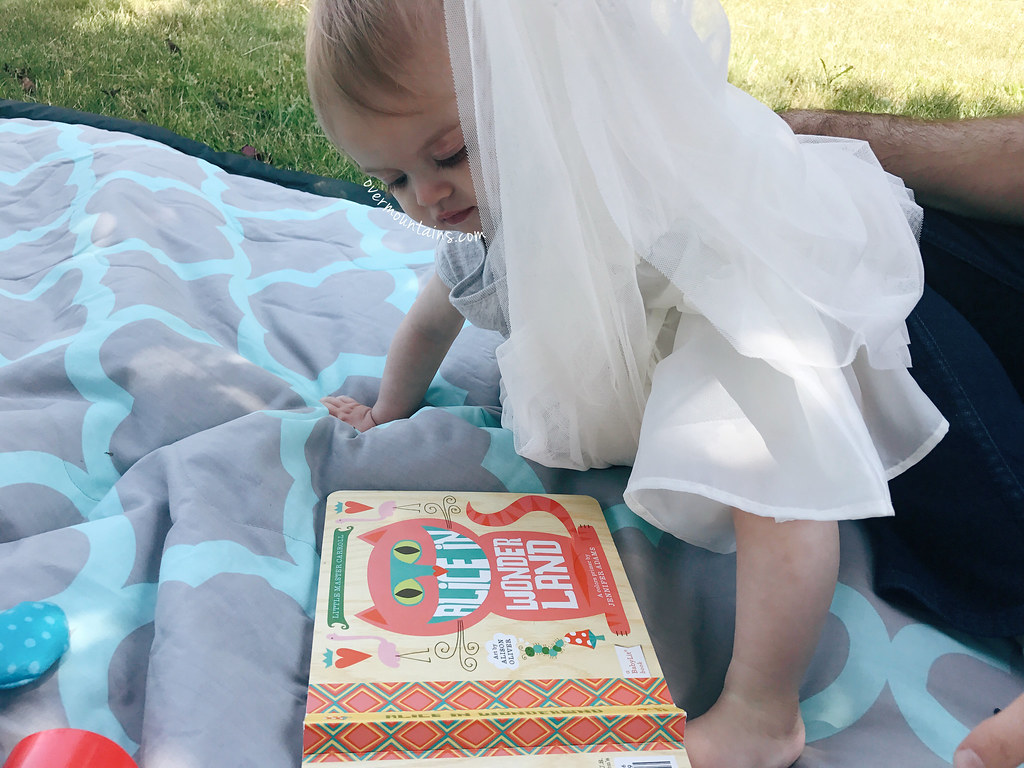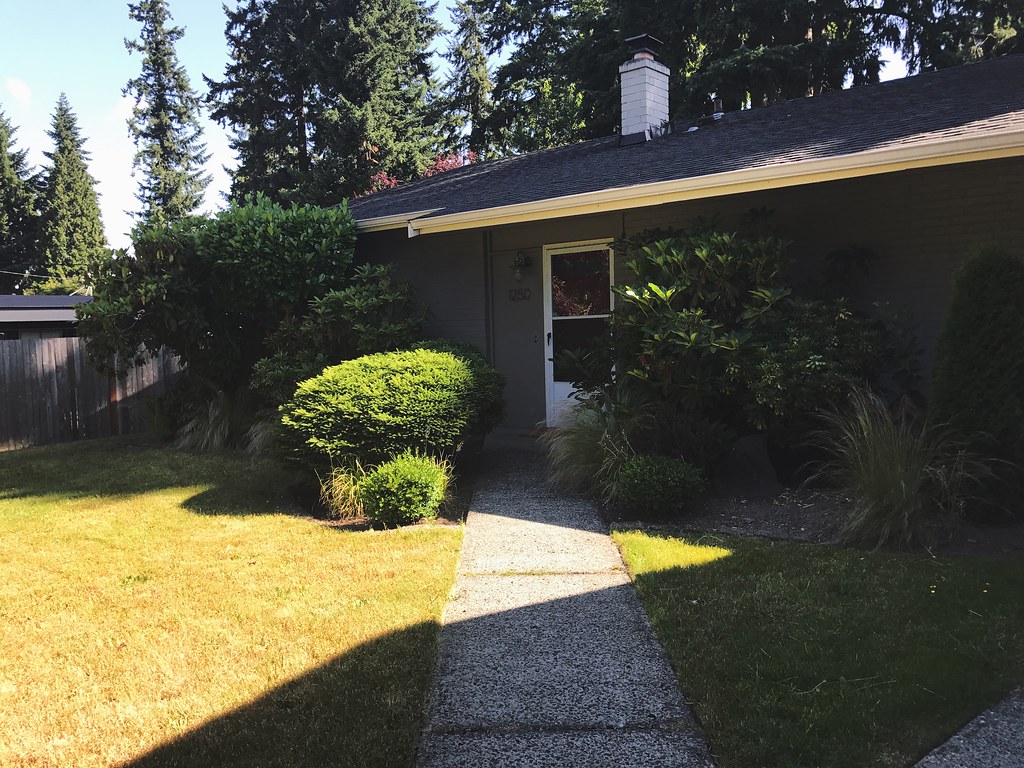This time last year, I was due to give birth! I didn’t until two weeks later, but still! I figured that it’s as good a time as any to post the birth story a few of you have wanted to read. It was a pretty typical labor, nothing crazy happened, and we were all okay in the end. If words like “dilation” make you uncomfortable, this isn’t the post for you.
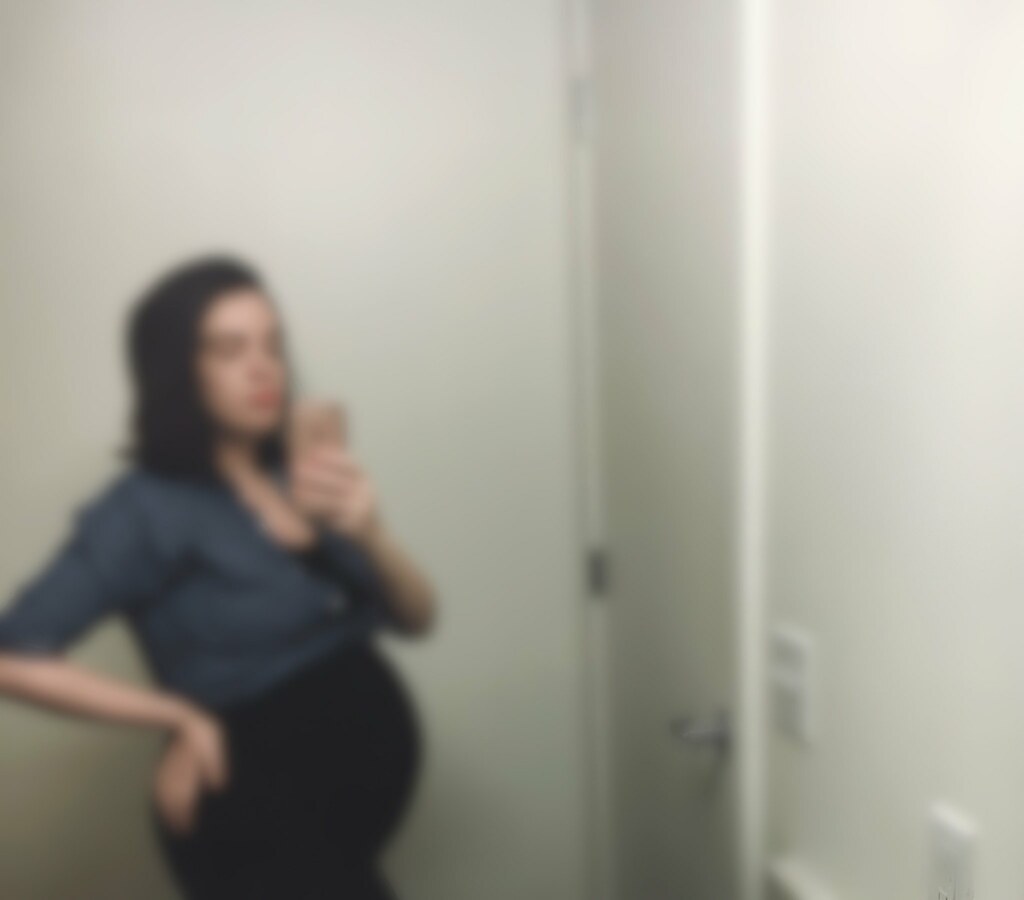
I was 41 weeks and 3 days pregnant when I stood, shifting my weight from one leg to another, in the elevator of the City Target in Downtown Seattle when woman with silver hair asked me how far along I was. I told her, my discomfort audible, my face plastered with a grimace that became permanent three days earlier. She looked at me intently, scanning my massive belly, then finding my tired, angry eyes. She nodded knowingly and said the only thing that could really be said to a woman 10 days past her due date: “Well. Yeeeeah.”
By then, I was receiving daily infuriating text messages from friends and family, some that consisted only of question marks. My pelvic pain limited my ability to walk more than about a half a mile per hour, and the acts of getting up from the couch or turning over in bed were frustrating, laughable, and in some cases, impossible for me to accomplish without assistance. I was too swollen to wear my shoes, couldn’t keep down food, and had never-ending heartburn. Like a dementor, pregnancy had officially stolen every last ounce of happiness I had left in me. I was miserable, a typical woman 41 weeks pregnant.
My midwives spoke to me slowly, carefully, the way you might speak to someone pointing a gun at your head. “I’m sorry,” they’d say, “I know you’re uncomfortable.” They pitied me. I had been coming into the office for NSTs every couple of days where they’d confirm that the baby was okay, I was okay, and I still wasn’t in labor. Of course, it wasn’t for lack of trying. I had two membrane sweeps, one when I was just over 40 weeks pregnant, and one at 41+2, which my midwife called “reaming” because she did it so forcefully. I was desperate for my pregnancy to be over, and really, I was running out of time. The day of my “reaming” was also the day we made concrete plans to attempt to evacuate my child from my uterus. An induction was scheduled, and on September 1st at 9 p.m., I’d be put on Pitocin. I couldn’t tell if I was nervous, disappointed or some third thing, but I resigned myself to napping, watching Harry Potter movies, and moving as little as possible in anticipation of labor and the new life I was bringing into the world which would surely mean I would never nap, watch Harry Potter, and not move ever again.
On August 31, I woke up with contractions at 3:00 a.m., and they came every 5-10 minutes all day long until 8:00 p.m. when they just stopped. My frustration was only paralleled by my rage. Why was nothing happening?! Why was I seriously ending another day with a baby still inside of me with no intention of exiting?! I headed to bed at 9:00 p.m. and stayed awake thinking of what was coming the next day. Pitocin, pain, 3 hours of pushing (I didn’t have any hope), stitches, but…baby! I decided I was going to sleep in for as long as possible when I finally closed my eyes at 1 a.m. But my sleep was short-lived. I woke up at 3:00 a.m. on September 1st to contractions. Again. I was in no mood for more prodromal labor, no mood for contractions that would not result in me giving birth. I was going to the hospital in 16 hours, and I was desperate for more than the two hours of sleep I had gotten. I shut my eyes, begging my brain and body to sleep, yelling in my head about how I was going to be sucking on ice chips later that night and spending hours trying to expel an actual human being from body through an opening the size of a bagel.
Naturally, on a day where it was imperative to me that I was well rested, my body laughed in my face. Just like it had been doing for two weeks. My contractions were decently painful (like the ones I had when I was miscarrying my first pregnancy/menstrual cramps x 100), and I thought they were coming quickly, so I started timing them with an app on my phone to see the damage. I was having contractions every 5 minutes, lasting anywhere from 1-1.5 minutes. So much for going back to sleep. After about 4 contractions the app told me to go to the hospital. But I knew better — I had just spent the day prior in the very same situation, and it was all for naught. I actually laughed because it was too damn funny to think that I would ever actually be in the position where I needed to get to a hospital because birth was imminent. When the contractions started coming every 3 minutes, I figured I’d at least tell Alex.
“Alex,” I whispered, waking him up. “I’m having contractions again. They’re coming pretty close together, 3-5 minutes apart”
“Do you want to get up and go to the living room?,” he asked.
“Yeah, I guess.”
He encouraged me to sit on my exercise ball, which I did. I quickly found that it just made my pain worse, so I settled for kneeling on the floor, draping myself over the ball instead. That, too, was miserable. It seemed to be a pattern. I took a few contractions before I gave up and headed to the couch to lie in the fetal position. A few hours passed while my pain intensified before I decided to sit in the bathtub, hoping it would take the edge off. Alex called my midwife’s office to ask what my next step was, just as I lowered myself into the luke warm water.
The midwife instructed us to come to the office at 9:30 a.m. where I’d have another NST to check on the baby and talk about my options. Alex brought my hospital bag down to the car and lined the passengers seat with a trash bag with a towel placed over it in the (extremely unlikely) event that my water broke during the one mile drive. I grumbled the entire way from our apartment into the parking garage, grumbled some more leaving the parking garage, and started to become more agitated as we drove on the bumpy city streets. When we got to my midwife’s office, Alex parked the car in an area that was definitely not a parking space but was close to the elevators, and I said every swear word I have ever heard in my life as I walked to them.
When we finally made it to the office, I left Alex at the front desk to head to the waiting room where I found four other pregnant women and their companions. I sat on the edge of a chair across from a woman who looked like she must have been in her second trimester because she appeared to be happy. For a moment, I felt contempt for this person I didn’t even know. I was the quintessential seething woman in labor like you see in the movies, except I was in far too much pain to scream at Alex, and far too tired to break someone’s hand by squeezing it. The woman stared at me as I gripped the armrests, exhaling deeply as my stomach tightened and the pain of my contractions peaked. The room was quiet and everyone was looking at me. The faces of the males in the room were combinations of horror and sympathy. I can only imagine what those women — the people who actually had to birth their babies — were thinking. A nurse came to greet me, and I was led into a room with a big, soft, teal chair, and was hooked up to a fetal monitor. I’d have to wait 20 minutes to hear the results, and I spent those 20 minutes completely silent. When the 20 mins were up, a nurse came in, told me my contractions were coming every 2-3 minutes, and that I was in labor. With that, she led me to an exam room to see the midwife.
Robin, a midwife I had seen twice before, was a breath of fresh air. She was real, empathetic, didn’t look at me like I was crazy when I told her my fears, and was so kind and patient. I liked her immediately when I met her — weeks before — and Alex and I hoped more than anything that she’d be on call on the day I went into labor. I was so happy that I nearly smiled when she walked into the room that day, grinning, thrilled that I had gone into labor and wouldn’t need an induction after all. She was still grinning as she examined me and found I was 3-4 cm dilated. I spoke slowly, my muscles clenching with every contraction, and I told her that I hadn’t slept much, I was in pain and desperate for a break. I really needed to sleep, I said. Robin knew I was not entirely comfortable with the idea of an epidural (which would likely allow me to sleep), so she explained that she could offer me Fentanyl when I was admitted to the hospital, but there was a catch. The Fentanyl would make me feel drunk for certain, and might not actually relieve the pain and allow me to rest. Feeling drunk while having contractions was a hard pass for me, and I told her as much. I knew I would be giving birth running on fumes and unmedicated, but at least I’d actually be giving birth — a welcome relief after 42 weeks. Robin gave me two options: I could go home for 1.5 hours max and then head to the hospital, or I could just be admitted right then. It took a few minutes for me to decide, but I chose to go to the hospital. It was a short drive — just a couple of blocks — and I was in better spirits by the time we got to the parking garage. I texted close friends and family to say that it was going down for real, I was actually in labor, and I was buzzing with anticipation.
When we made it up to the birth center, it all felt surreal. For a moment I was actually excited. Alex filled out some papers while I labored on a bench near the reception area before a nurse came and led me into a room the size of an airplane hangar with huge windows and a view of downtown Seattle. I made a beeline for the bed to sit down, and was overcome with relief that I wasn’t in labor at home anymore or in a doctor’s office. I was where I needed to be to give birth.

I was hooked up to a monitor again, and the intermittent monitoring I was expecting from the very beginning just wasn’t my reality at the time. I wasn’t sure why, but I wasn’t in the mood to ask, so I rolled with it. Eventually, after nearly an hour, I was given wireless monitors so I could labor in the big, deep jetted tub in the bathroom. I couldn’t use the jets with these monitors on my belly, but I didn’t mind, especially because being in the water wasn’t providing me as much relief as I hoped it would. Eventually, when the water became cold, I got out of the tub. The monitors were finally taken off, and I was left to labor untethered. Alex and I made the decision to call my doula who began the drive down from Everett, and she made it to the hospital in record time.
Sindea came into the room smiling, and I was so relieved to see her. She had been a doula for 18 years, witnessed over 400 births, and was chock-full of knowledge, empathy, and most importantly to me at the time, pain relief techniques. We had a short conversation between my contractions before she took out her TENS machine. She placed the sensors on my back, and told me to activate the electrical pulses with the push of a button when my contractions were beginning to peak. The pulsing sensation was no match for the pain of my contractions, and they were actually uncomfortably distracting, but I kept it on for at least an hour — maybe more — hoping beyond all hope that it would help. Eventually, I gave up and attempted other methods. I labored in various positions, labored for another hour or so in the tub, took sips of water when I could, and listened to Sindea’s soothing voice. When my muscles instinctively tensed when a contraction began, she coached me in relaxing my body and reminded me to breathe until, finally, I was able to do these things without prompting. She helped me to stay focused and present — to not fight what I was feeling. Her support was instrumental to me, and with her help, I was crawling my way through labor millimeter by millimeter. When the rolling contractions (contractions that come one after another without a break in between) began, I closed my eyes, only to open them a handful of times until I finally gave birth.
A few hours had passed as I labored in complete silence on my hospital bed before Sindea got a phone call saying that there was an emergency she needed to attend to. She was going to need to leave the hospital, so she called her backup doula and bid us goodbye. Alex and I were alone now. When I had the capacity to think, I felt bad that my eyes were closed and that I wasn’t speaking. I could not do anything but stay silent when my contractions came, and even if I could have maintained my ability to speak, there was really nothing to talk about. Between thinking about how guilty I was feeling, I thought of my grandparents, and it was a comfort to me.
Robin came to check on me as Mariah, Sindea’s backup doula, came into the room and introduced herself. She immediately sat down by my side and offered suggestions to help me cope with the increasing pain of my contractions. I labored in various positions and changed positions frequently before I laid down, semi-reclined, on my left side with some pillows behind my back, some supporting my belly, and a few pillows between my knees. Eventually I ended up on my back with my knees bent, Mariah and Alex taking turns to forcefully push my legs inward toward my body. This helped immensely in relieving the pain I felt in my back and hips, and really did make me feel quite a bit better.
It wasn’t long before the pain intensified further. Mariah coached me in low-moaning as I worked hard to consciously relax my muscles with every contraction. After a few hours of laboring like this, I said the most I had said all day: “I can’t do this anymore.” But really, I knew that I could. I had the will to continue, and even if I didn’t, it’s not like I had the choice in the matter, so I quickly added, “I don’t want to do this anymore.” Eventually, Robin came in and asked how I was doing, to which I replied, “Honestly, this entire day has been a complete shit show.” Unsurprisingly, I was miserable and exhausted. She empathized with the struggle and asked if I wanted her to check my dilation. I was curious to know how I was progressing, so I said yes. I wasn’t feeling overly confident, but I hoped I was at least 5 cm to make me feel a little better about the pain I was feeling. She said I was 7-8 cm, and I was so happy I probably would have cried if I had any energy. Mariah spoke immediately and said, “The hard part (transition) is not coming. It’s not something you are going to have to do, you are already doing it.” I labored some more with two nurses, Robin, Mariah and Alex telling me that I was doing a great job.
Less than an hour passed before Robin encouraged me to use the bathroom and labor on the toilet for a few contractions. I shuffled slowly to the bathroom and took a few contractions on the toilet before the pain was just too much for me to bear, and I stood up. I noticed that I was leaking fluid, and when I opened the door, I said in the weakest voice I have ever heard emerge from myself, “I think my water broke.” Robin said, “Okay! It’s okay!,” as I walked back into the room and got back in bed. Robin wanted to check my dilation once more and found that I was 9 cm, and although I was leaking water, it had not yet broken. She asked if I wanted her to break my water for me, explaining that it may help to ease the pain I was feeling. Before I could respond, it broke spontaneously (and audibly — it was pretty loud), and Robin and the nurses suited up for the delivery. I was 10 cm dilated almost immediately.
The foot of my bed was dropped down, and the back was raised straight up so that I was in the “throne” position (sitting). Gravity was going to assist me as the baby gently slid out of my body, though neither gravity nor the baby understood that “gently” was the keyword. Somehow, miraculously, I had a minute or two of relief before my contractions really ramped up. The pain, of course, followed suit. I only had one last run-of-the-mill contraction before my body started to involuntarily bear down with each one. The pressure was overwhelming, and it was far and away the worst part of labor. About 35 minutes later, Robin said that I could push along with my body if I wanted to, and because I was desperate to get the baby out, I did. I was mindful to keep the muscles in my face relaxed, and use all of my energy to bear down. About 10 minutes later, the baby was crowning, and Robin asked if I wanted a mirror so I could see what was happening. I yelled my response, “Fuck no!” Robin told me to stop pushing. A minute later, she said, “Deena, open your eyes. Look down, look at your baby.” Kaia entered the world at 10:02 pm after 45 minutes of (voluntary and involuntary) pushing — pink and crying — and was quickly placed on my chest. She was tiny, warm, and beautiful, with eyes like the ocean. “Hi,” I said. “Hi, baby. You’re here.”

The world melted away. I didn’t notice that she pooped all over me as soon as I put my arms around her, I didn’t notice when I delivered the placenta, I barely noticed getting stitched up. All I could focus on was the child in my arms. A real human, my own flesh and blood. I held her for almost two hours, staring at her. I felt like I knew her long before we met. I thought of all of the hard days during my pregnancy, and the struggles, sadness, and heartbreak I experienced over the course of my life, and suddenly, it all had deeper meaning. Everything I had ever done, every moment I had ever experienced, led me right into that hospital bed with my husband’s hand on my head, and the person for whom it was all for laying on my chest.
For all of my life she was always with me, but now she was really here.
Life as I knew it ended in that delivery room.
When it was time to start heading to my postpartum room, Alex took Kaia over the scale to be weighed. Robin held Kaia in her arms for a few seconds and predicted, accurately, that she would weigh 8 lbs 3 oz. Afterward, Alex took her and held her as I did things like attempt to move (it was very hard) and pee (I physically couldn’t, so a catheter was used to help me out). Eventually, I sat in a wheelchair, had Kaia handed to me, and I was wheeled out. We went upstairs, passing smiling doctors, and into the very postpartum room we toured when I was 30 weeks pregnant. I smiled at the memory of myself, the terrified pregnant woman who had no idea that in just twelve weeks she would be in that same room holding the meaning of her life in her arms. The first of the rest of my days began right there in that thimble-sized room on the fourth floor of a gigantic hospital.
Now I smile at the memory of myself, the euphoric new mother, who had no idea that boundless love, pride, and happiness were waiting for her.


